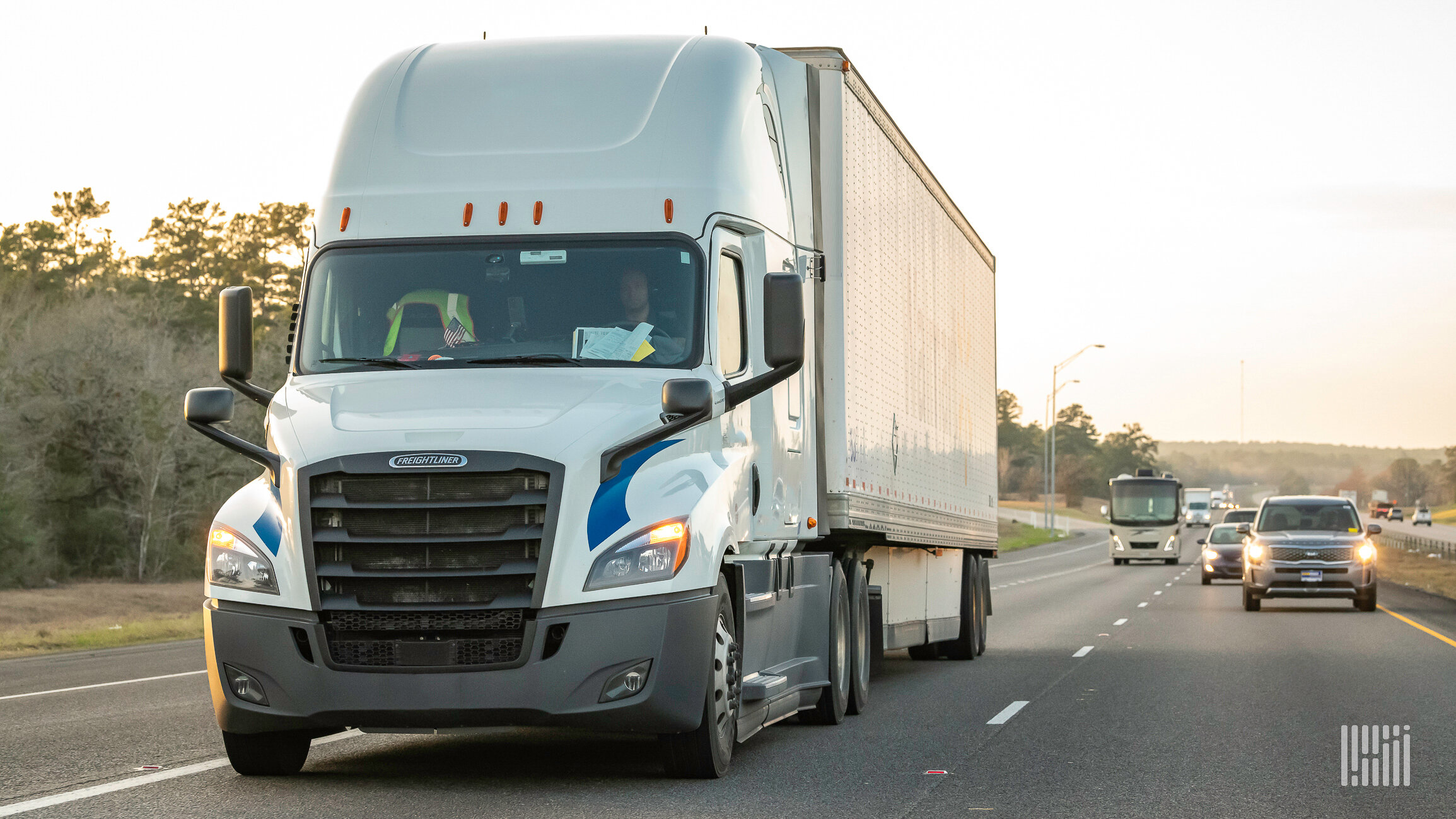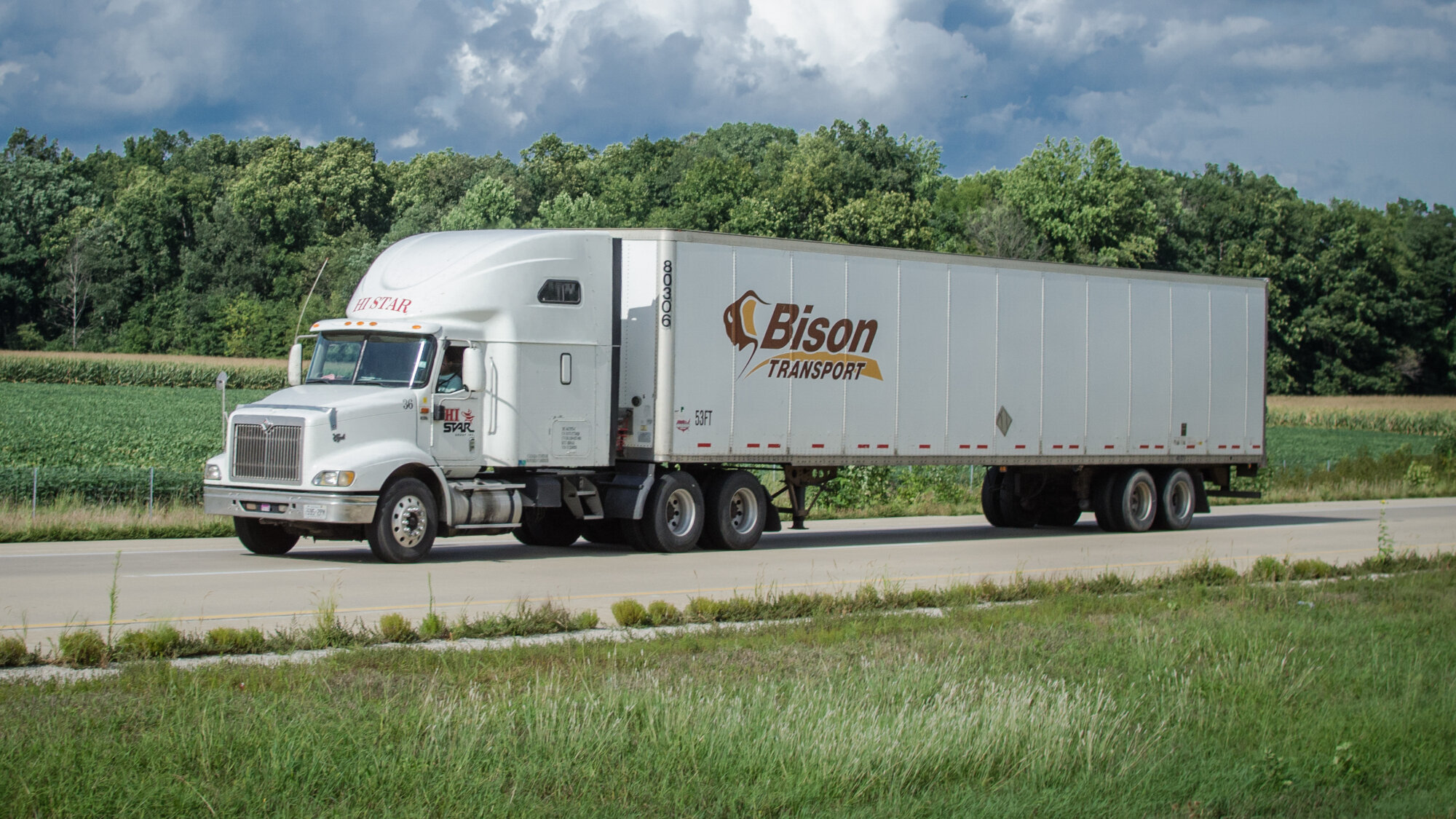
Jim Allen/FreightWaves
The employee, on behalf of a class of drivers, sued a motor carrier/delivery services provider and its carrier subsidiary (“Defendants”) for failure to provide meal and rest periods in violation of California Labor Code §§ 226.7 and 512, and Wage Order 9-2001 §§ 11, 12, among other things. The United States District Court for the Central District of California granted summary judgment in favor of the Defendants on the grounds that the California requirements were preempted by federal law. This is a significant ruling for the trucking industry in California. The court has invited the employee to appeal to the Ninth Circuit Court of Appeals, however.
Background
The employee is a California resident who was previously employed by the carrier as a truck driver. The employee alleged that the carrier wrongly failed to pay wages for all compensable work time, failed to provide duty free meal and rest periods or to pay added wages in the absence of such break periods, failed to provide properly itemized pay statements, failed to maintain proper time and pay records, and failed to pay all accrued wages upon termination of its truck drivers, all allegedly in violation of California law. The carrier provides delivery services, including the hauling and delivery of freight loads by truck.
Defendants filed a partial motion for summary judgment against the first claim alleging violations of the meal and rest period requirements of the California Labor Code. Defendants argued that because the Federal Motor Carrier Safety Administration (“FMCSA”) has made a binding determination that California’s meal and rest break rules, as applied to property-carrying commercial vehicle drivers, are preempted by FMCSA hours of service regulations, they should win. The employee argued that (1) the motion should be denied without prejudice pending the results of challenges to the FMCSA’s decision in the Ninth Circuit; (2) the FMCSA’s preemption determination does not apply retroactively; (3) the FMCSA’s determination is unenforceable; and (4) Defendants’ motion improperly seeks a final judgment.
Court’s Decision
The court began by noting that the Order published by the FMCSA, an agency of the United States Department of Transportation (“DOT”), in December of 2018, concluded that the California meal and rest break rules contained in California Labor Code §§ 226.7 and 512, as applied to property-carrying commercial vehicle drivers, are preempted by the FMCSA’s hours of service regulations. The court determined that the Order trumped the California rules because under federal law, the Secretary of Transportation is authorized to make a determination that state laws meeting certain criteria are preempted and may not be enforced. Here, the Secretary of Transportation’s authority to issue such determinations has been delegated to the FMCSA Administrator and the Administrator published the Order noted above. Therefore, the court determined that the Order was controlling and preempted the enforcement of California’s rules.
The interesting caveat, however, is that federal law states that judicial review of a DOT preemption determination may only be heard by a circuit court. This means that only a Court of Appeals may make a determination on the merits of the case. The district court did not have the power to do so and had to follow the Order exactly. The district court, however, invited the employee to appeal the decision and the Ninth Circuit Court of Appeals to consider if the Order by the FMSCA Administrator should be invalidated. As noted by the district court, there are many challenges to this Order pending before the Ninth Circuit and even though the district court stated that a ruling by the Ninth Circuit is not imminent, one may be coming shortly ahead.
Takeaway
An important point to note here is that while California’s meal and rest break rules, as applied to property-carrying commercial vehicle drivers, are deemed to be preempted by FMCSA hours of service regulations, challenges to this Order are currently pending before the Ninth Circuit Court of Appeals. This means that at any time the Ninth Circuit could overrule this decision and the Order by the FMCSA Administrator, and require carriers to comply with the California regulations. Accordingly, carriers need to keep this in mind when determining how to proceed in California. It is advisable to consult with experienced legal counsel to make sure that you are in compliance with all federal and states regulations as required and are prepared to adjust should the Ninth Circuit make an unfavorable ruling.
R. Eddie Wayland is a partner with the law firm of King & Ballow. You may reach Mr. Wayland at (615) 726-5430 or at rew@kingballow.com. The foregoing materials, discussion and comments have been abridged from laws, court decisions, and administrative rulings and should not be construed as legal advice on specific situations or subjects.




















